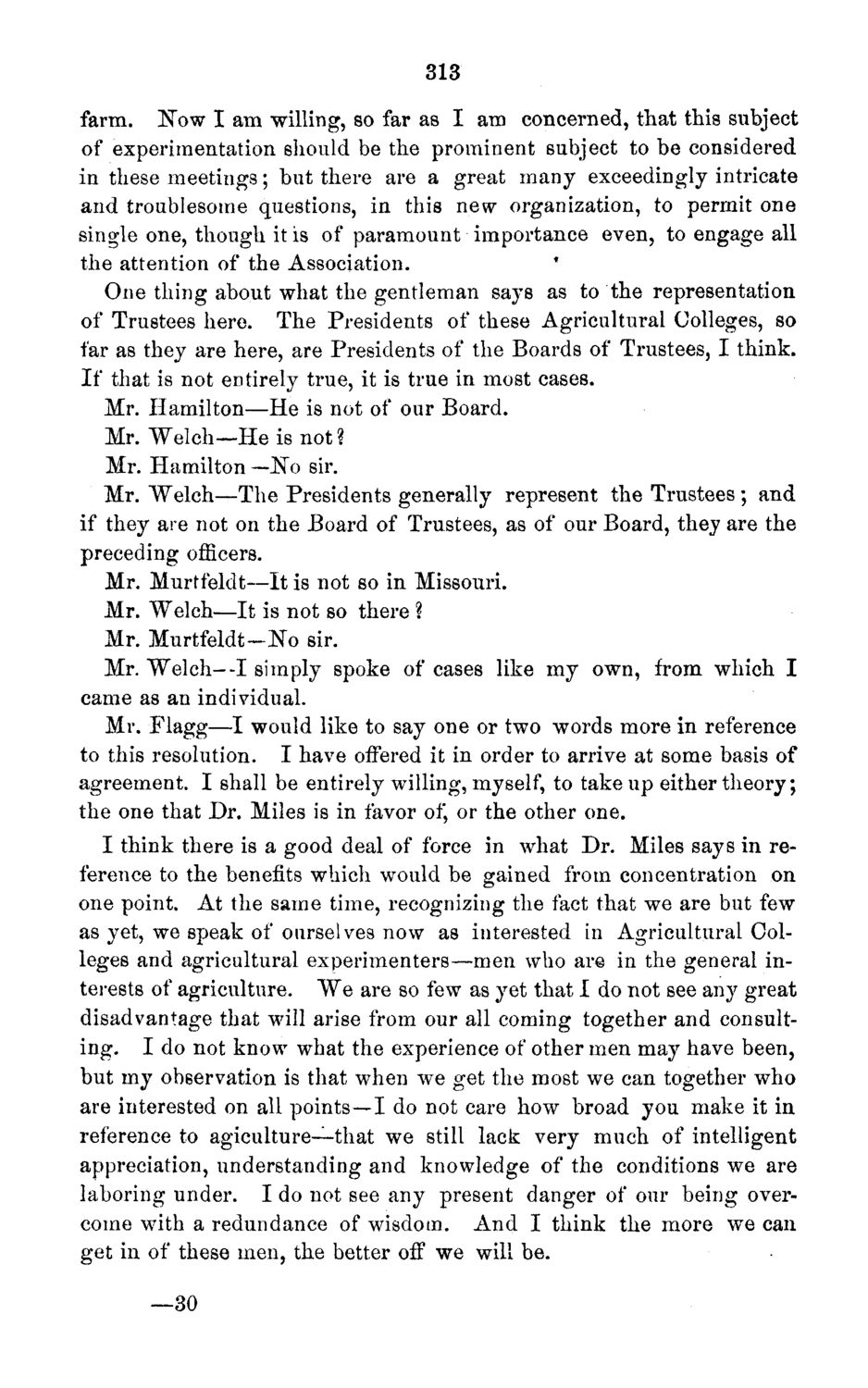| |
| |
Caption: Board of Trustees Minutes - 1871
This is a reduced-resolution page image for fast online browsing.

EXTRACTED TEXT FROM PAGE:
313 farm. Now I am willing, so far as I am concerned, that this subject of experimentation should be the prominent subject to be considered in these meetings; but there are a great many exceedingly intricate and troublesome questions, in this new organization, to permit one single one, though it is of paramount importance even, to engage all f the attention of the Association. One thing about what the gentleman says as to the representation of Trustees here. The Presidents of these Agricultural Colleges, so far as they are here, are Presidents of the Boards of Trustees, I think. If that is not entirely true, it is true in most cases. Mr. Hamilton—He is not of our Board. Mr. Welch—He is not ? Mr. Hamilton —No sir. Mr. Welch—The Presidents generally represent the Trustees ; and if they are not on the Board of Trustees, as of our Board, they are the preceding officers. Mr. Murtfeldt—It is not so in Missouri. Mr. Welch—It is not so there ? Mr. Murtfeldt—No sir. Mr. Welch--I simply spoke of cases like my own, from which I came as an individual. Mr. Flagg—I would like to say one or two words more in reference to this resolution. I have offered it in order to arrive at some basis of agreement. I shall be entirely willing, myself, to take up either theory; the one that Dr. Miles is in favor of, or the other one. I think there is a good deal of force in what Dr. Miles says in reference to the benefits which would be gained from concentration on one point. At the same time, recognizing the fact that we are but few as yet, we speak of ourselves now as interested in Agricultural Colleges and agricultural experimenters—men who are in the general interests of agriculture. We are so few as yet that I do not see any great disadvantage that will arise from our all coming together and consulting. I do not know what the experience of other men may have been, but my observation is that when we get the most we can together who are interested on all points—I do not care how broad you make it in reference to agiculture—that we still lack very much of intelligent appreciation, understanding and knowledge of the conditions we are laboring under. I do not see any present danger of our being overcome with a redundance of wisdom. And I think the more we can get in of these men, the better off we will be. —30
| |